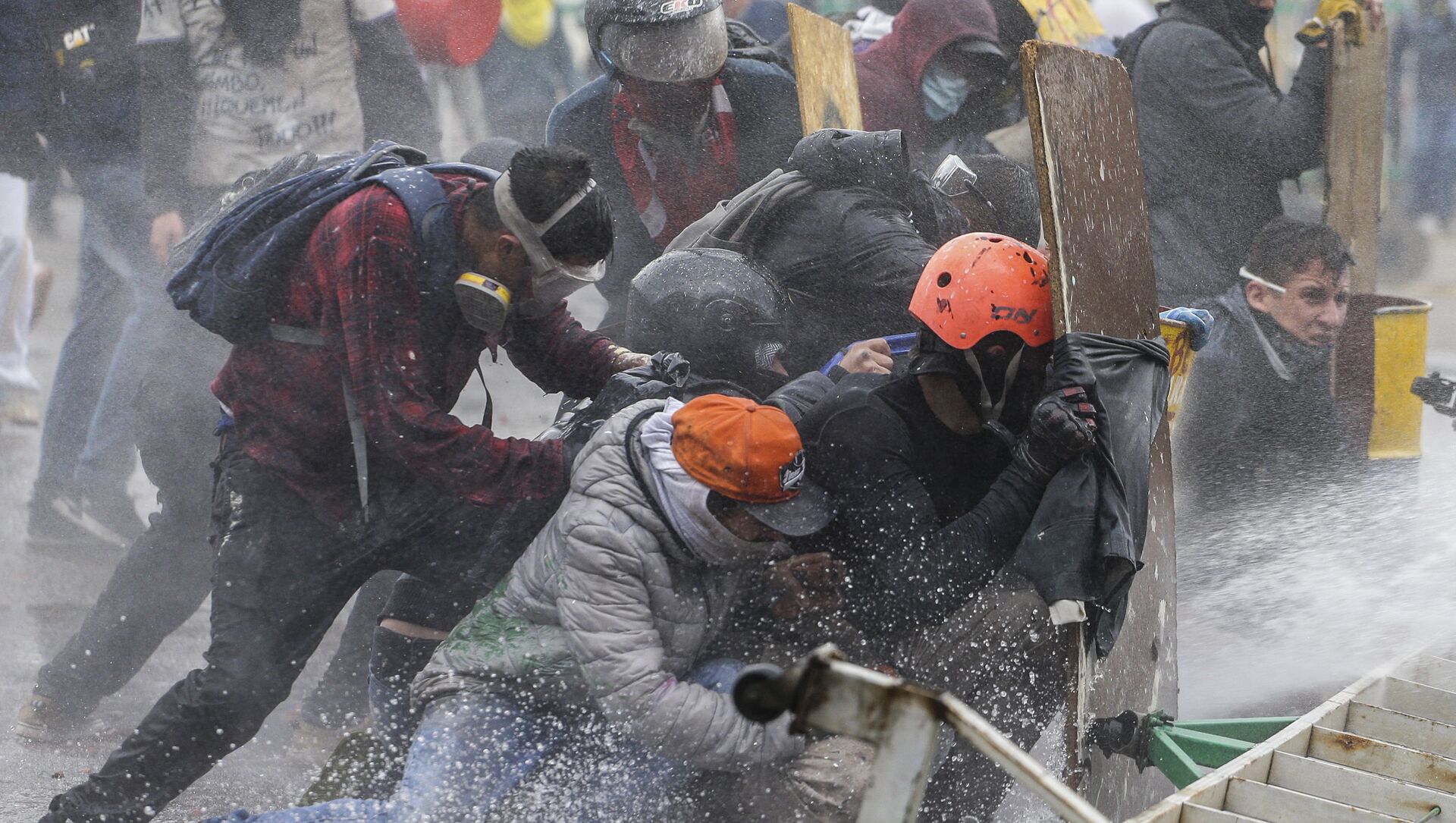The governors of Cauca, Valle del Cauca, Narino, Huila, Norte de Santander, Putumayo, Risaralda, and Caqueta have been instructed to coordinate the actions of police and military forces in order to remove the current roadblocks and prevent more road blocking in the future.
The presidential decree also requires local authorities to impose a curfew on their territories.
Workers’ strikes and public protests started in Colombia last month, with people walking out against the so-called Sustainable Solidarity Law, a now-shelved tax reform bill that trade unions warned would lead to at least 1.5 million workers having to pay new taxes.
At the start of May, Duque asked Congress to withdraw the draft tax reform and urgently discuss a new one amid nationwide protests.
Labor and student organizations in Colombia have demanded social and healthcare reforms, the demilitarization of cities, and the dissolution of the Mobile Anti-Disturbance Squadron forces.
A governmental commission led by Duque held a meeting with National Unemployment Committee (CNP) representatives earlier this month, however, no agreement was reached and protests continue in Colombia.
UN spokesman Faran Haq said during a press briefing on Friday that the protests and roadblocks are preventing critical supplies from being transported throughout the country's cities.


